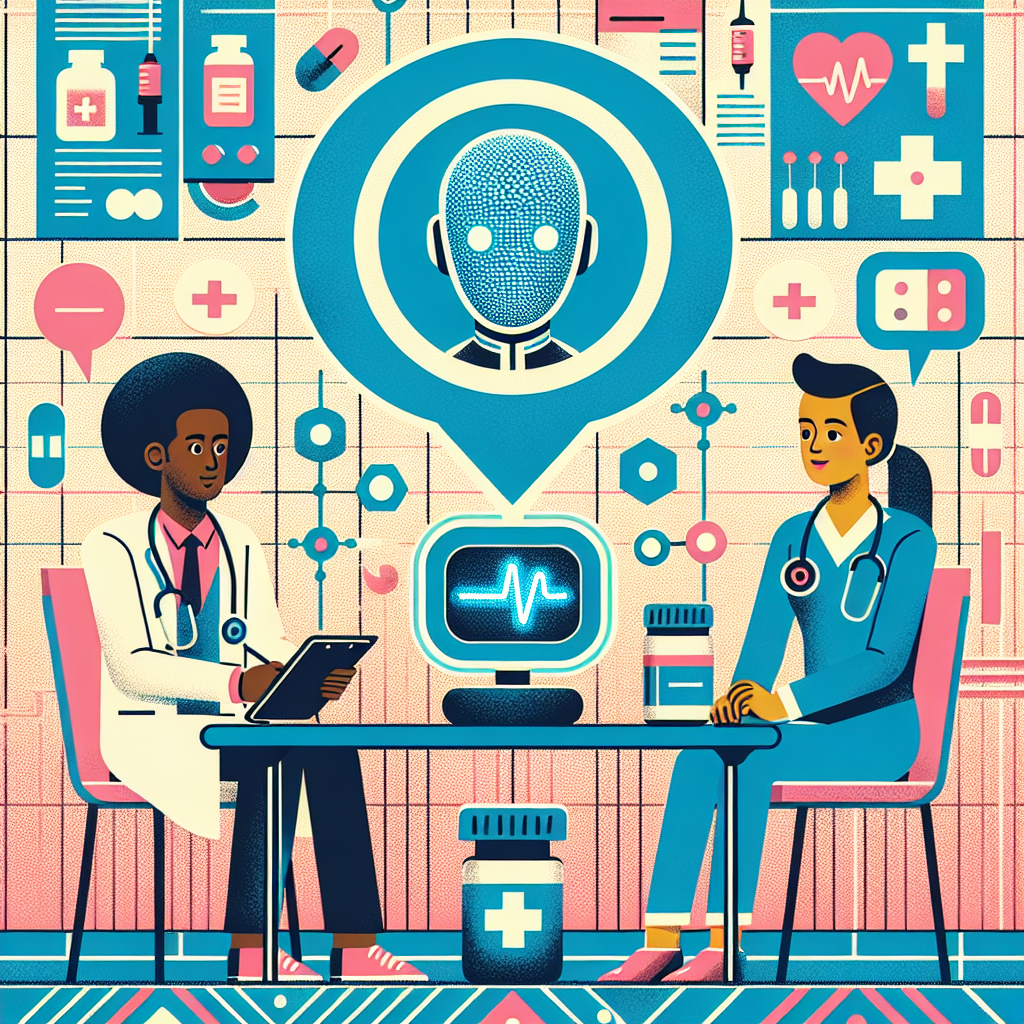Conversational AI, also known as chatbots or virtual assistants, are revolutionizing the healthcare industry by providing patients with quick and convenient access to information and support. These AI-powered tools can assist patients with scheduling appointments, answering medical questions, providing medication reminders, and even monitoring their health conditions. In this article, we will explore the role of conversational AI in healthcare and its impact on patients, providers, and the overall healthcare system.
The Role of Conversational AI in Healthcare
1. Improved Patient Experience: Conversational AI tools can enhance the patient experience by providing round-the-clock access to information and support. Patients can easily ask questions about their health conditions, medications, and treatment plans without having to wait for a callback from their healthcare provider. This instant access to information can help patients feel more informed and empowered to take control of their health.
2. Increased Efficiency: Conversational AI can help healthcare providers streamline their workflows and improve efficiency. By automating routine tasks such as appointment scheduling, prescription refills, and lab results notifications, providers can free up time to focus on more complex patient care tasks. This can lead to faster response times, reduced administrative burden, and improved patient outcomes.
3. Personalized Care: Conversational AI tools can be tailored to meet the unique needs of individual patients. By collecting data on patients’ health history, preferences, and treatment goals, AI-powered chatbots can provide personalized recommendations and support. For example, a chatbot could remind a patient to take their medication at a specific time each day, or offer dietary advice based on the patient’s health condition.
4. Remote Monitoring: Conversational AI can enable remote monitoring of patients’ health conditions, allowing healthcare providers to track vital signs, medication adherence, and symptoms in real-time. This can help identify potential health issues early and prevent complications before they escalate. For example, a chatbot could alert a healthcare provider if a patient’s blood pressure readings are consistently elevated, prompting a follow-up phone call or video consultation.
5. Health Education: Conversational AI can serve as a valuable source of health education for patients, providing information on a wide range of topics such as disease prevention, healthy lifestyle choices, and treatment options. By engaging patients in meaningful conversations about their health, AI-powered chatbots can empower them to make informed decisions about their care and take proactive steps to improve their health outcomes.
Frequently Asked Questions about Conversational AI in Healthcare
Q: How secure is conversational AI in healthcare?
A: Conversational AI platforms in healthcare are designed to comply with strict data security and privacy regulations, such as HIPAA in the United States. These platforms use encryption, authentication, and access controls to protect patient information and ensure confidentiality. However, it is important for healthcare providers to carefully vet AI vendors and ensure that their platforms meet industry standards for data security.
Q: Can conversational AI replace human healthcare providers?
A: Conversational AI tools are not meant to replace human healthcare providers, but rather to augment their capabilities and improve patient care. While AI-powered chatbots can provide valuable support and information to patients, they do not have the ability to diagnose medical conditions or provide personalized treatment recommendations. Human healthcare providers play a critical role in interpreting complex medical data, making treatment decisions, and providing compassionate care to patients.
Q: How can patients trust the information provided by conversational AI?
A: Patients should always verify the information provided by conversational AI tools with their healthcare provider before making any decisions about their care. While AI-powered chatbots are programmed to provide accurate and up-to-date information, they may not always have access to a patient’s complete medical history or be able to account for individual variations in health conditions. Patients should use conversational AI as a supplement to, rather than a replacement for, traditional healthcare services.
Q: What are some examples of conversational AI applications in healthcare?
A: Conversational AI is being used in a variety of healthcare settings, including telemedicine, patient engagement, medication management, and chronic disease management. For example, some healthcare providers use chatbots to conduct virtual consultations with patients, while others use AI-powered tools to send medication reminders and track patient progress between office visits. The possibilities for conversational AI in healthcare are endless, and new applications are being developed every day.
Q: How can healthcare providers implement conversational AI in their practices?
A: Healthcare providers can implement conversational AI in their practices by partnering with AI vendors that specialize in healthcare solutions. These vendors can help customize AI-powered chatbots to meet the specific needs of the provider’s practice and integrate them with existing electronic health record systems. Healthcare providers should also provide training to staff members on how to use conversational AI tools effectively and ensure that patients are informed about the availability of these tools for support and information.
In conclusion, conversational AI is reshaping the healthcare industry by providing patients with convenient access to information and support. These AI-powered tools can improve the patient experience, increase efficiency for healthcare providers, personalize care, enable remote monitoring, and educate patients about their health. While conversational AI is not meant to replace human healthcare providers, it can augment their capabilities and improve patient outcomes. As the field of conversational AI continues to evolve, we can expect to see even more innovative applications in healthcare that will transform the way we deliver and receive healthcare services.

